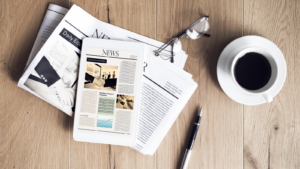“The most basic and powerful way to connect to another person is to listen. Just listen. Perhaps the most important thing we ever give each other is our attention.” – Rachel Naomi Remen
Recently, my family attended a 90th birthday party for my husband’s mother. Over 100 family members and another 100 friends turned out to honor Grandma Hendrickson and thank her for a life well lived.
More than once, I heard people say, “She always makes me feel important when I’m with her.” When I asked them how, the response was invariably, “She listens to me.”
In this fast-paced, multi-media, multi-tasking world, are people losing the ability to listen? And, how can you help to reverse the trend?
Listening well is the key to effective communication.
It doesn’t matter how fascinating or helpful or important a message may be, if no one hears it.
When people fail to listen well, they miss vital info, misinterpret messages, or even damage their relationships with the messengers. At the least, they waste valuable time and energy.
Conversely, when you practice the art of good listening, your friends, family members, and colleagues feel “heard.” They feel appreciated and respected. You and they can make decisions more quickly and with less “wear and tear” on the relationship.
What gets in the way of effective listening?
Multi-tasking is often the culprit.
Have you ever taken a phone call while checking email or browsing the web? Or checked your smart phone while having a face-to-face conversation? Have you ever been talking to someone else when they did either of those things?
I’m willing to bet it bugged you. The quality of your interaction suffered. The truth is, it’s easy to get distracted by technology, other people, or even your own thoughts.
Even when not obviously distracted, people inadvertently send non-verbal signals that they’re not listening.
Have you ever had a conversation with someone who slouched or who had a disinterested posture? How about someone who seemed to be completely unaware of his or her facial expressions?
It’s very common (even understandable in high-stress situations) for people to wait for a break in the conversation, so they can jump in with their own point of view, rather than really “listening” to what is being said.
Has anyone ever talked over you, interrupted you, or (heaven forbid!) tried to finish your sentences for you? Could it be that even you may be guilty of some of these blunders? You’re human, after all.
Guilty as charged. How do I improve my own listening skills?
Take some lessons from Grandma Hendrickson. When listening, make that your sole task.
- Remove distractions.
- Focus your attention on the person speaking.
- Sit (or stand) up straight and look interested.
- Maintain an appropriate amount of eye contact. Nod and smile as appropriate.
- Be deeply curious about what the person speaking has to say.
- Demonstrate your interest by asking relevant questions, to gain deeper understanding.
- Take note of key points. Link to what you hear.
- Summarize occasionally to make sure you’re capturing important information.
- Pay attention to the non-verbal signals. Notice any discrepancies between what the other person is saying and the message they’re sending with their body language.
- Create a safe environment for communication by having an open mind.
- Seek to understand the other person’s opinion before sharing your own.
Bottom line: Just say less!
Few authors are more frequently misquoted than Mark Twain. One of my personal favorites, often misattributed to him (but actually a concept first expressed by Greek philosopher Epictetus), is this: “If we were meant to talk more than listen, we would have two mouths and one ear.”
For the next week, take up the challenge of saying less. Try it. Focus intently on the people around you. Pause, listen, and ask questions.
I’m confident that deep and continual practice of the gracious art of listening will not only improve your communications with others, but also strengthen your relationships with them — and make you as valued a person as our beloved Grandma Hendrickson.










